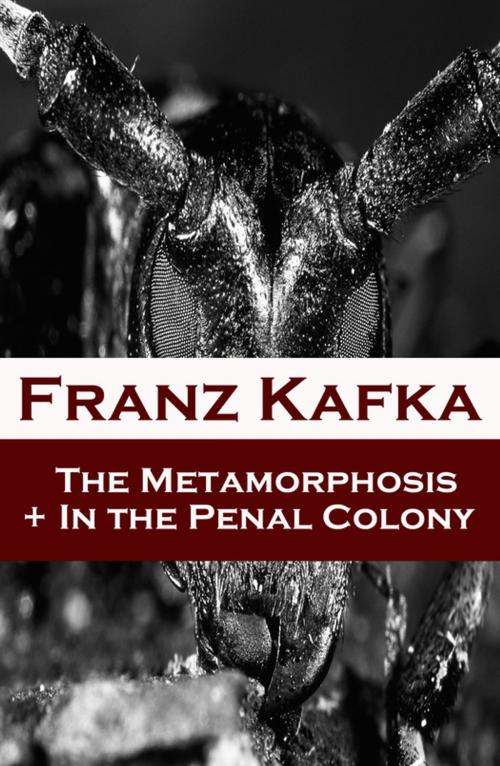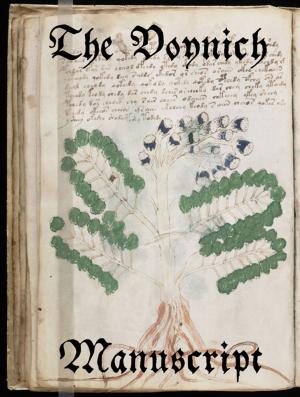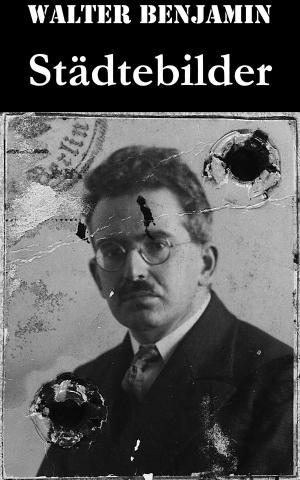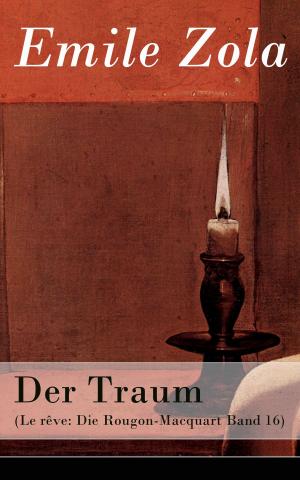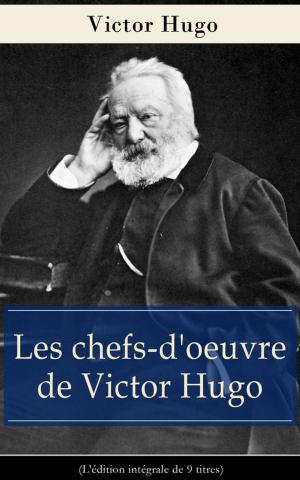The Metamorphosis + In the Penal Colony (2 contemporary translations by Ian Johnston)
Science Fiction & Fantasy, Fantasy| Author: | Franz Kafka | ISBN: | 9788074849657 |
| Publisher: | e-artnow | Publication: | November 14, 2013 |
| Imprint: | e-artnow | Language: | English |
| Author: | Franz Kafka |
| ISBN: | 9788074849657 |
| Publisher: | e-artnow |
| Publication: | November 14, 2013 |
| Imprint: | e-artnow |
| Language: | English |
This carefully crafted ebook: “The Metamorphosis + In the Penal Colony (2 contemporary translations by Ian Johnston)” contains 2 books in one volume and is formatted for your eReader with a functional and detailed table of contents.
The Metamorphosis is a novella by Franz Kafka, first published in 1915. It has been cited as one of the seminal works of fiction of the 20th century and is studied in colleges and universities across the Western world. The story begins with a traveling salesman, Gregor Samsa, waking to find himself transformed (metamorphosed) into a large, monstrous insect-like creature. The cause of Samsa's transformation is never revealed, and Kafka never did give an explanation. The rest of Kafka's novella deals with Gregor's attempts to adjust to his new condition as he deals with being burdensome to his parents and sister, who are repulsed by the horrible, verminous creature Gregor has become.
"In the Penal Colony" is a short story by Franz Kafka written in German in October 1914, and first published in October 1919. The story is set in an unnamed penal colony. Internal clues and the setting on an island suggest Octave Mirbeau's The Torture Garden as an influence. As in some of Kafka's other writings, the narrator in this story seems detached from, or perhaps numbed by, events that one would normally expect to be registered with horror. In the Penal Colony describes the last use of an elaborate torture and execution device that carves the sentence of the condemned prisoner on his skin before letting him die, all in the course of twelve hours. As the plot unfolds, the reader learns more and more about the machine, including its origin and original justification.
Franz Kafka (1883 – 1924) was a German-language writer of novels and short stories, regarded by critics as one of the most influential authors of the 20th century. Kafka strongly influenced genres such as existentialism. Most of his works, such as The Metamorphosis, The Trial, and The Castle, are filled with the themes and archetypes of alienation, physical and psychological brutality, parent–child conflict, characters on a terrifying quest, labyrinths of bureaucracy, and mystical transformations.
This carefully crafted ebook: “The Metamorphosis + In the Penal Colony (2 contemporary translations by Ian Johnston)” contains 2 books in one volume and is formatted for your eReader with a functional and detailed table of contents.
The Metamorphosis is a novella by Franz Kafka, first published in 1915. It has been cited as one of the seminal works of fiction of the 20th century and is studied in colleges and universities across the Western world. The story begins with a traveling salesman, Gregor Samsa, waking to find himself transformed (metamorphosed) into a large, monstrous insect-like creature. The cause of Samsa's transformation is never revealed, and Kafka never did give an explanation. The rest of Kafka's novella deals with Gregor's attempts to adjust to his new condition as he deals with being burdensome to his parents and sister, who are repulsed by the horrible, verminous creature Gregor has become.
"In the Penal Colony" is a short story by Franz Kafka written in German in October 1914, and first published in October 1919. The story is set in an unnamed penal colony. Internal clues and the setting on an island suggest Octave Mirbeau's The Torture Garden as an influence. As in some of Kafka's other writings, the narrator in this story seems detached from, or perhaps numbed by, events that one would normally expect to be registered with horror. In the Penal Colony describes the last use of an elaborate torture and execution device that carves the sentence of the condemned prisoner on his skin before letting him die, all in the course of twelve hours. As the plot unfolds, the reader learns more and more about the machine, including its origin and original justification.
Franz Kafka (1883 – 1924) was a German-language writer of novels and short stories, regarded by critics as one of the most influential authors of the 20th century. Kafka strongly influenced genres such as existentialism. Most of his works, such as The Metamorphosis, The Trial, and The Castle, are filled with the themes and archetypes of alienation, physical and psychological brutality, parent–child conflict, characters on a terrifying quest, labyrinths of bureaucracy, and mystical transformations.
